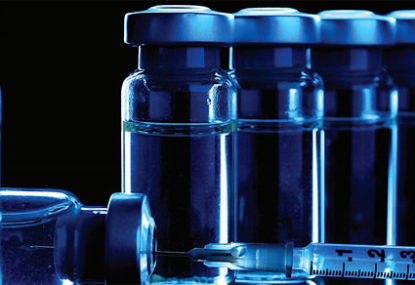And it continues to roll on. The ‘he said, she said’ of the Essendon Football Club’s drugs scandal.
Who knew what, who should be punished and what exactly happened are all open to speculation as the innuendo and allegations are flying through the media.
Every self-respecting Melbournian has an opinion. Many lunch tables in workplaces all over our great city are in furious disagreement as to just what transpired and what exactly should be done with those involved.
It’s getting very difficult to separate fact from fancy and from separating the personalities involved from their alleged actions, or lack of action.
The long-running drugs saga at one of the oldest and biggest clubs in the competition is beginning to take its toll not just on those intimately involved, but also on fans and onlookers alike.
As we eagerly await the release of the ASADA report into the goings-on at Essendon, it is timely to reflect on just what is at the heart of this issue.
So, what are we really talking about here?
Is the issue the drugs that the Essendon players were injected with are of dubious legality?
Is the issue a broader question of whether athletes should be injected with any substance at all, let alone one that is not approved for human use?
Are we also talking about corporate governance and its apparent breakdown at Essendon?
These are all important questions and there is no doubting the vast array of opinions held by the public in response to them. But sadly, if these have been the things you have been most focused on, you are missing the real point of this whole sorry and sordid affair.
What is at stake in this affair is the notion of creating an environment that allows for the development of a culture of doping in Australian Rules football.
This scandal should be seen as a catalyst for ensuring that the AFL hierarchy learns some serious lessons about how easily a doping culture can pervade a sport.
The AFL need only look to the sport of cycling to see the destructive effects of a doping culture.
For those of you who ever click onto the cycling pages of this website or visit other cycling forums, you will know the hours that are given over to this subject.
We endlessly debate the damaging effects of the drugs epidemic that has strangled cycling and how best to deal with it.
We can’t even watch blue ribbon events like the Tour de France without that nagging doubt at the back of our minds as to the legitimacy of the winners.
With this in mind, let me ask you:
Do you want constant suspicion and cynicism to surround the winner of every Brownlow Medal, Coleman Medal or Grand Final result?
The AFL is in a unique position to confront doping and ensure that the insidious culture of cheating that pervades so many other sports does not take hold in our unique game.
To do so requires moral courage though. It requires the administrators to put aside the greed brought on by the dollar signs of increased revenue at the expense of an honest game and the ability to separate mates and personalities from the corrupting influence of doping.
The AFL hierarchy have been on a fact mission to the US in recent weeks. However, I would like to suggest another type of fact finding mission that does not require leaving the office.
All they need to do is jump on any cycling media website or forum and spend some time ingesting the damage that years of unchecked and allegedly officially sanctioned doping has done to that great sport.
The biggest lesson for the AFL to learn from cycling’s experience is that of the role of sporting administrative bodies in ensuring their sport stays clean of cheating.
There are many allegations flying through cycling that the current UCI administration have, at the very least, some serious questions that need addressing.
There are allegations that cycling’s administrators were so enamoured by the dollars and exposure a certain Texan brought to the sport that any suggestion of dodgy practices and test results were swept under the carpet.
The money was rolling in, the sport was expanding, alleged donations were made and the biggest and most frightening institutionalized doping regime flourished.
We need to ask ourselves if this is what we want to see in AFL.
Will the AFL have the moral courage to put the dollar signs to one side and send a clear and powerful message to those who wish to pump young men full of untested substances, that these sorts of actions and this culture has no place in our code?
Because the frightening thing in all of this is not just what was injected, but the cultural belief that it is okay to do this to young men who put their faith in the club that they are rightly proud to play for.
In some respects, it actually doesn’t matter if the Essendon players who were involved in this took a prohibited substance. The reality, it seems, is that the Essendon Football Club was on a trajectory to developing a culture where injecting players with highly suspicious substances was not questioned; and for all intents and purposes, nobody raised any moral or ethical questions about the practice. For that reason alone, everyone allegedly involved should be punished to the full extent of the rules they have transgressed.
The AFL stands at the precipice.
It can choose to make a stand against doping and its culture of greed. It can choose to punish those whose motives, let alone actions, should fill us with moral disgust. The AFL can send a clear message to its players, staff, fans and the broader community, that such behaviour will not be tolerated.
Only time will tell which way the pendulum will swing.





























































































